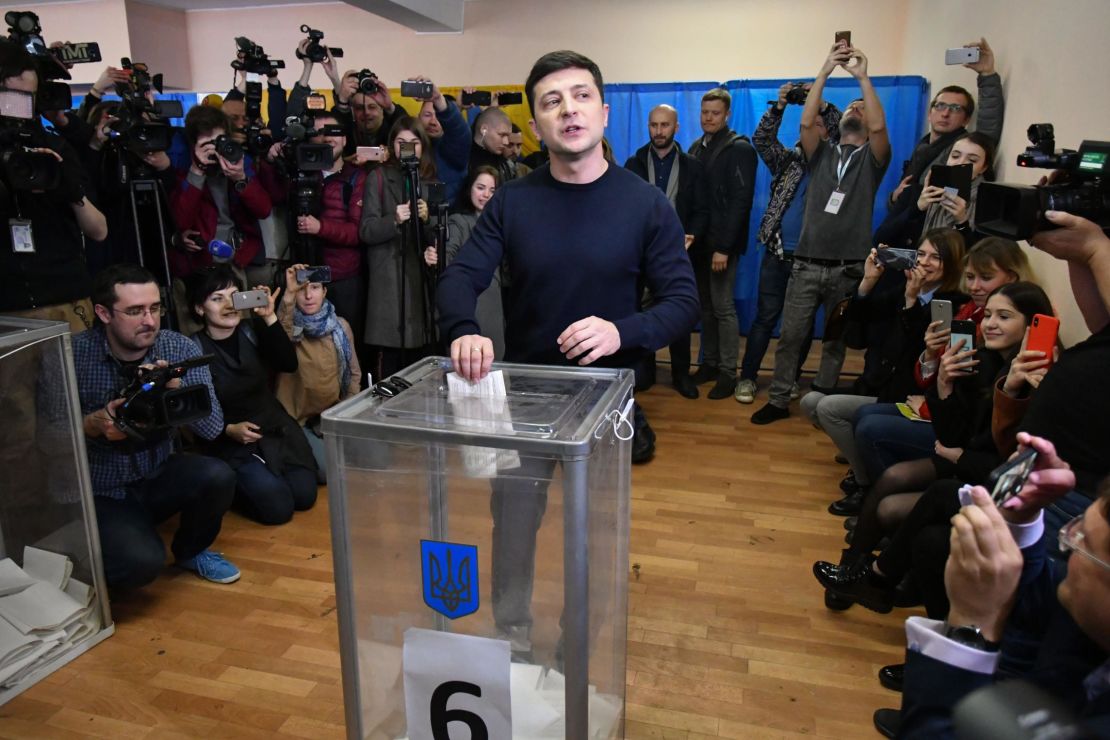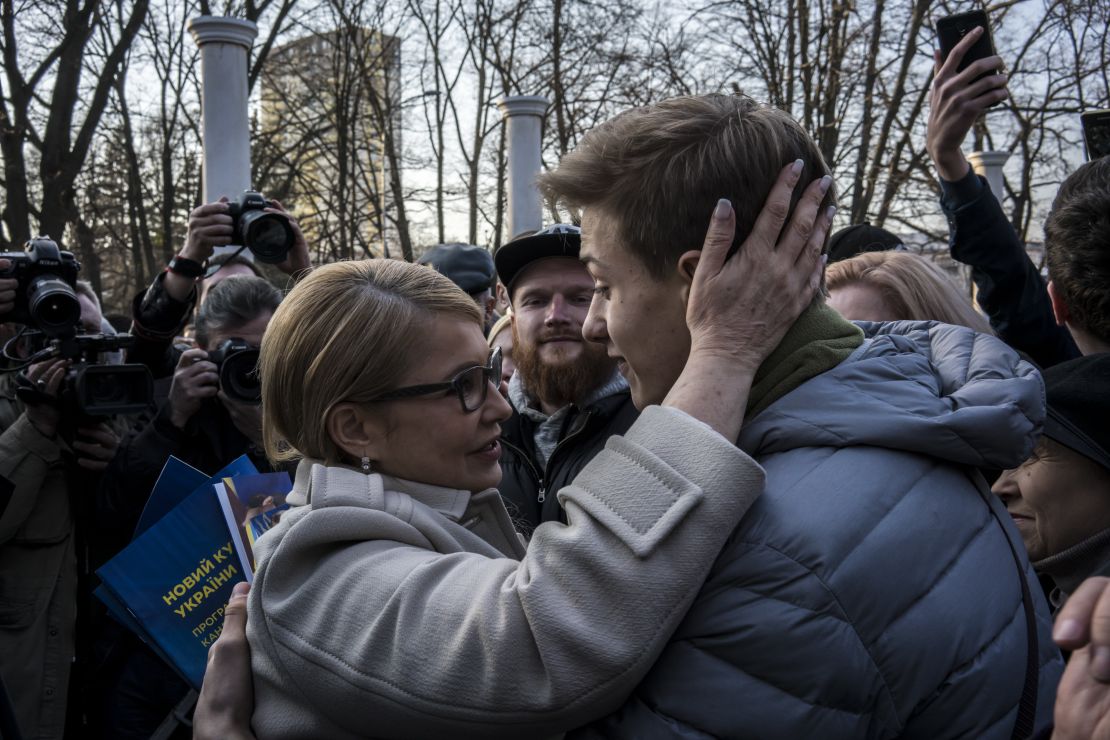The front-runners in Ukraine’s presidential election were a chocolate magnate, an energy tycoon-turned-populist and a television comedian. That may sound like a parody headline, but Sunday’s vote was serious business for a country at war.
Ukrainians went to the polls on Sunday after five years locked in a proxy war with Russia. In 2014, Russian troops annexed the Black Sea peninsula of Crimea, and Moscow fueled a separatist conflict in eastern Ukraine’s Donbas region. The United Nations estimates that, as of February 15, the fighting has claimed almost 13,000 lives, with at least 3,321 civilian deaths and an estimated 9,500 combatants killed.
The incumbent, President Petro Poroshenko, campaigned on his ability to play tough with Russia. In a statement this week on Twitter, Poroshenko cast Russian President Vladimir Putin as his main opponent.
“When asked who is my ally, with whom I am ready to unite and coordinate my actions, I answer: my ally is the Ukrainian people,” he tweeted Tuesday. “Who is my opponent? I am not ashamed to say it openly – this opponent is Putin.”
But Sunday’s vote ended without any candidate obtaining an absolute majority of votes, so a runoff will be held April 21.
Candidate Volodymyr Zelensky, a television comedian and political newcomer, received 30.4% of the vote, according to exit polling posted by Ukrainian state news agency Ukrinform.
Poroshenko, the incumbent, appears likely to move to the second round, with 17.8% of the vote in early exit polling.
Another top candidate, former Prime Minister Yulia Tymoshenko, carried 14.2% of the vote, according to the poll. In remarks at a press conference, Tymoshenko conceded first place to Zelensky, but discounted exit polls showing Poroshenko in second place.
Poroshenko faced an uphill battle to make it to that second round. Earlier this week, a poll by Rating Group Ukraine showed that the leading candidate, Zelensky, had the support of 27.7% of intended voters.
Just under a year ago, the President’s support among likely voters was in the single digits. Since then, Poroshenko has reduced the gap: In another recent survey, American pollster GQR found the current president catching up with Zelensky, with 20% of likely voters saying they would vote for him if the election were held the coming Sunday.

Household name
Poroshenko, a tycoon best known for his ownership of chocolate manufacturer Roshen, may have the advantages of incumbency. But he’s competing against someone who has major name recognition.
Zelensky is a comedian and the star of “Servant of the People,” a Ukrainian television series now carried on Netflix.
And in a made-for-TV twist, the plot of the series foreshadowed his quixotic political bid: Zelensky plays a down-and-out schoolteacher who unexpectedly becomes President of Ukraine after becoming famous for an anti-corruption rant that goes viral on social media.
“Servant of the People” is, in effect, a campaign advertisement for Zelensky: A new episode was set to air on Wednesday on the 1+1 channel, just days before the election.
But political observers also say Zelensky is something of a blank slate, a complete newcomer to politics whose mastery of policy details is still rather scant.
Poroshenko, by contrast, has campaigned on a patriotic and national-security platform, running on a slogan of Armiya, Mova, Vira (meaning “army, language, faith.”)
Poroshenko in recent months has stepped up confrontation with Russia. After Russia seized three Ukrainian navy ships and detained 24 sailors in a strategic waterway that links the Azov Sea with the Black Sea in November, Poroshenko’s government responded by imposing martial law and warning of impending Russian invasion.
Ukraine’s President has also played on Ukraine’s bid for greater spiritual independence from Russia, welcoming a decision last October by Bartholomew I of Constantinople, the spiritual and symbolic leader of the Eastern Orthodox church, to recognize an independent Ukrainian Orthodox Church.

‘Democracy in Ukraine is messy … but competitive’
The latest Rating Group Ukraine poll showed both Tymoshenko and Poroshenko running neck and neck, each with support from 17% of likely voters.
Tymoshenko, twice a former prime minister, is a formidable opponent. The former head of an energy company in the 1990s, she came to power in 2007 following a wave of peaceful protests known as the Orange Revolution.
She left office in 2010 and was later jailed over a natural gas agreement that she signed with Russia, a sentence widely seen as political.
The only thing certain in Ukrainian politics is uncertainty. In contrast to neighboring Russia, where Putin won a resounding (and expected) victory in the polls last year, we don’t know if the incumbent will come out on top.
“Democracy in Ukraine is messy & far from perfect, but it’s competitive,” former US Ambassador to Ukraine Stephen Pifer wrote on Twitter on Tuesday. “We’re 5 days from presidential election & less than 26 days from almost certain run-off, but no one knows who will win. In contrast, we knew in 2013 who would win 2018 presidential election in Russia.”
